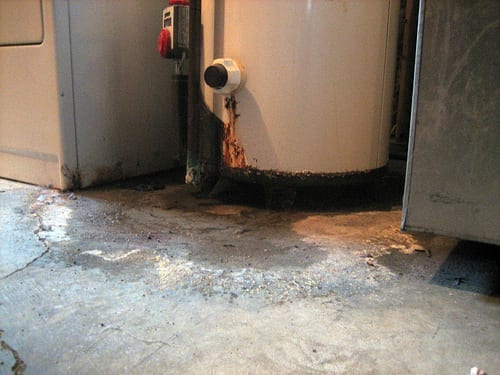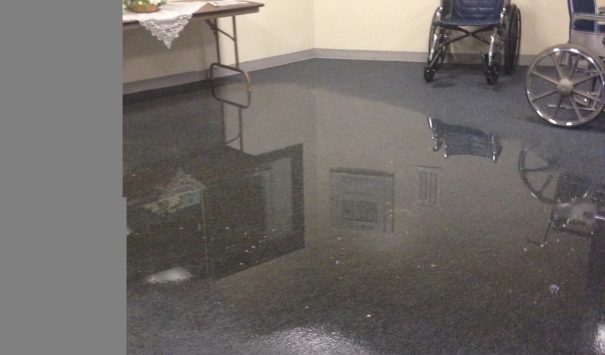Critical Recommendations for Homeowners Managing Broken Hot Water Systems
Critical Recommendations for Homeowners Managing Broken Hot Water Systems
Blog Article
How do you feel on the subject of What Do You Do When Your Water Heater Bursts??

Whether it is located in the cellar or a separate area, broken water heaters can trigger stress and anxiety. A basic system holds 80 gallons, so an over night leakage will certainly result in a flooding. This causes major property damage with soaked walls and floors. Having no hot water supply is additionally frustrating. If you are managing these problems, keep in mind of the following:
Turn Off Power Source
Prior to calling the plumber, turned off a gas hot water heater by turning the temperature dial. This is typically found at the top of the thermostat. Change off the circuit breaker if you have a version that runs on electrical power. This will certainly protect against electrocution, specifically if there is a leakage as water is a conductor. Typically, the heating element shuts off when the water hits a specific temperature. Yet with a busted storage tank, it might malfunction. Cutting it off ensures you remain secure.
Cut Off the Cold Water Supply
Cut off the tanks tap water supply from the resource. When your container is in great condition, the cool water stops loading up when the storage tank is full. If you can not find it or reach it, you should transform off that main water supply line outside your property.
Call the Plumber
After doing the initial two security actions, you have to call your plumber to come right away to repair a burst water heating system. There are usually signs that your aging water heating unit has debris accumulation in the interior.
Don't wait for major flooding to call the plumber. By then, you will need to spend even more to restore your residential property. Rather, as soon as you spot these indicators, have actually a professional concerned check your hot water heater thank. Generally, hot water heater have a life expectancy of regarding 8 to 12 years. With normal inspection and maintenance, you can extend its life.
Tidy up Building
After calling the plumber, file damages by taking notes and images so you can claim your home owner's insurance policy. Remove any kind of standing water to avoid mold as well as mildew growth. If you have a completely submersible water pump, use that to drain pipes the water.
Remember, if you observe any problems with your hot water heater, call the pros right now. You can not take this trouble gently because a damaged thermostat can raise water temperature to a dangerously high degree, bring about accidental burns. A broken heating system pressure safety valve can additionally cause an explosion. For finest outcomes, obtain a yearly check so your system obtains inspected, cleaned up, drained pipes, and also re-filled, assuring optimum efficiency.
Whether it is situated in the basement or a separate space, busted water heating systems can trigger anxiety. Prior to calling the plumber, closed off a gas water heater by turning the temperature dial. After doing the very first 2 safety and security steps, you should call your plumber to come right away to take care of a fractured water heating system. If you have a submersible water pump, use that to drain the water. Keep in mind, if you observe any kind of concerns with your water heating system, call the pros right away.
Is My Water Heater Broken?
The Water Heater is Old
No appliance will last forever. This includes a home’s water heater. During its lifespan, residents are going to face a situation where a new water heater installation will be necessary. The biggest problem with this is that most people are not sure when their water heater expires. Not knowing this can lead to serious risks if the unit begins to act up due to old age.
Most makes and models of water heaters will last between eight and 10 years. While 10 years is the age when water heater replacement is highly recommended, the need to replace the unit may occur before this time or after. If the unit doesn’t show any symptoms of a problem, it is a good idea to replace it at the 10-year mark (from the manufacture date).
Some of the symptoms that indicate a new unit is needed include rusting, leaks, noises, and a failure to heat up the water. Also, note that not all units have a 10-year life expectancy. The main exception to this rule is that a gas unit will last for six to eight years.
Rusty Heater Inlet Valve or Water
While steel is the strongest material on earth, it does have a weakness – rust. If corrosion occurs on a steel surface, it will begin to spread and eat through the steel in certain areas. On water tanks and pipes that are made of steel, rust is a warning sign of an impending leak.
The issue for many is trying to figure out if the rust is coming from the water heater or the pipes that lead to the faucet. If rust is seen, it is a clear indication that water heater service from the professionals is needed.
If rusty water appears out of the faucets in the bathtub or sink, it likely means a rusty water heater. If there is rust near the water inlet or the pressure relief valve, rust has likely developed inside the tank. If tap water appears rusty, it may be an issue with the pipes.
Strange Sounds from the Water Heater
Are there strange sounds coming from the tank? As a water heater gets older, rumbling noises may develop and get louder and louder as the water in the tank heats up. In homes where large amounts of hot water are used, the issue is likely going to be even more obvious when more serious issues arise. If there is a strange or loud noise coming from the unit, it is probably because of sediment buildup. A good way to remedy this problem is by flushing the heater. If this does not work, then a new unit may need to be installed.
Leaks
As a water heater gets closer to the end of its useful life, there is a higher chance there will be water around the tank. If there is water, this usually means leaks are occurring. Based on where the unit is located in the home, a leak may result in serious property damage.
Leaks are usually caused by expansions in the metal tank. The expansions occur as time passes and as the inside body of the tank is exposed to multiple heating cycles per day. When a fracture forms, the gap will be slight enough to hold the water in; however, in more serious situations, this will not be the case. If the tank is idle, the water will not leak but when the metal expands during each heating system, small amounts of water will get through the gap.

We had been guided to that editorial on How to Avoid a Broken Hot Water Heater through a good friend on a different web page. In case you enjoyed reading our page if you please do not forget to pass it around. We enjoy reading our article about Broken Water Heaters.
No more leaks, call us! Report this page